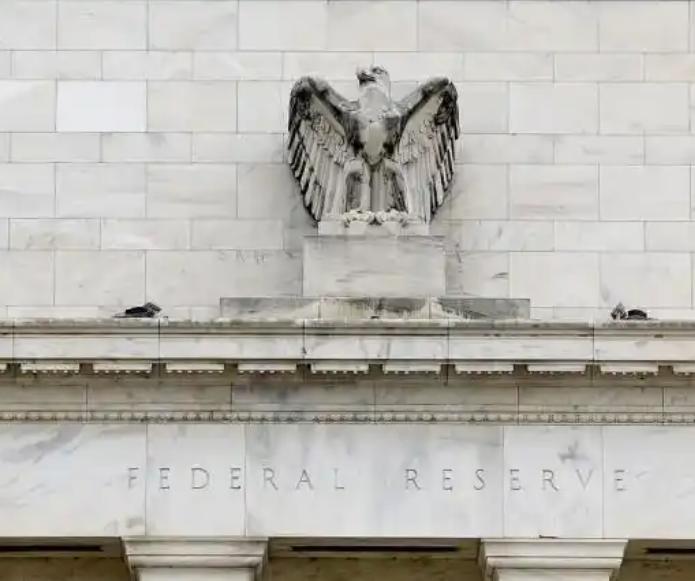
On September 14th, local time, US President Trump told reporters on his way back to Washington that he expected the Federal Reserve to announce a "significant interest rate cut" at its meeting this week, stating that "the current situation is very suitable for a rate cut." The Federal Reserve will hold its interest rate meeting from September 16th to 17th. The market unanimously believes that the Federal Reserve will cut interest rates for the first time in nine months at this crucial meeting. Although the inflation rate remains higher than the Federal Reserve's 2% target, the weak job market has raised concerns about economic growth. Trump has repeatedly pressured the Federal Reserve, saying that "the United States does not have inflation" and demanding "an immediate and significant interest rate cut," even advocating for interest rates to be lowered to around 1%. Since 1987, every time the Federal Reserve has initiated a rate cut cycle by cutting 50 basis points, the United States has fallen into an economic recession. If the Federal Reserve decides to cut interest rates this week, it will be the first time since December last year, marking the potential start of a new round of monetary policy easing.
If the expectation of a significant interest rate cut by Trump this week comes true, it will bring complex and multifaceted impacts to various aspects of the financial sector. Firstly, it will affect the stock market. The expectation of an interest rate cut usually drives stock prices higher, as a lower interest rate environment reduces financing costs and enhances the profitability and attractiveness of companies. Historical data shows that interest rate cuts typically stimulate stock market gains, especially in technology stocks and financial stocks. Technology stocks benefit significantly from their reliance on cheap financing, while financial stocks may see an increase in borrowing demand due to a lower interest rate environment. However, if the market perceives the interest rate cut as a precursor to a severe economic slowdown or even recession, investor sentiment may turn pessimistic, leading to a decline in the stock market. Especially in situations where the economic outlook is uncertain or financial markets are unstable, an interest rate cut may not be able to boost market confidence. A rate cut by the Federal Reserve may trigger fluctuations in global stock markets, but overall it may be positive for global stock markets. This is because an interest rate cut reduces global borrowing costs, promoting economic growth and investment activities.
Secondly, regarding the impact on the bond market, interest rate cuts will reduce bond yields and increase the present value of bonds, thereby driving the US bond market higher. Long-term bonds may rise ahead of schedule due to expectations of interest rate cuts. However, if the market believes that the interest rate cuts are too large or too fast, it may trigger concerns about inflation and monetary policy uncertainty, leading to fluctuations in the bond market. The Federal Reserve's interest rate cuts may trigger fluctuations in the global bond market, especially in emerging market bond markets. Interest rate cuts may reduce global borrowing costs and promote the development of emerging market bond markets. However, at the same time, interest rate cuts may also trigger changes in global capital flows, posing challenges to emerging market bond markets.
Thirdly, the impact on exchange rates and financial market stability. Interest rate cuts may lead to a weaker US dollar, as they reduce the attractiveness of US dollar assets. A weaker US dollar may drive emerging market currencies to appreciate, alleviating the depreciation pressure on emerging market currencies. The Fed's interest rate cuts may lead to changes in global capital flows, with funds potentially flowing from the US to overseas markets in search of higher returns. This may also exacerbate the volatility and uncertainty in global financial markets. At the same time, interest rate cuts may trigger policy adjustments by central banks in other countries to maintain the stability of their currencies and financial markets. However, this may also exacerbate the divergence in global monetary policies and increase uncertainty in financial markets.
Fourthly, the impact on commodity markets. Interest rate cuts may push up gold prices, as gold is regarded as a safe-haven asset and inflation hedge. A weaker US dollar may also enhance the attractiveness of gold, driving its price up. Additionally, in the crude oil market, on the one hand, interest rate cuts may stimulate economic growth and energy demand; on the other hand, they may also trigger concerns about inflation and monetary policy uncertainty, thereby exerting pressure on crude oil prices.
In summary, if the Federal Reserve implements a "significant interest rate cut" this week, its impact will spread to every corner of the global financial market. This move serves as a short-term policy tool to address economic slowdown, and it may also become a catalyst for reshaping long-term trends in the global financial market. Investors need to seize the opportunity while closely monitoring potential variables such as policy coordination, inflation resilience, and geopolitical risks.

On January 4th local time, Trump warned India that if it does not limit its purchase of Russian oil, the United States will continue to raise tariffs on Indian products. Trump's latest warning sent shockwaves through the Indian financial market in just one day.
On January 4th local time, Trump warned India that if it do…
In October 2025, the US trade deficit narrowed unexpectedly…
According to the British media CoinJournal, recently, due t…
In January 2026, US President Trump once again set his sigh…
Europe is facing a crucial strategic choice: In the face of…
On New Year's Day 2026, BMW China announced a "systematic v…